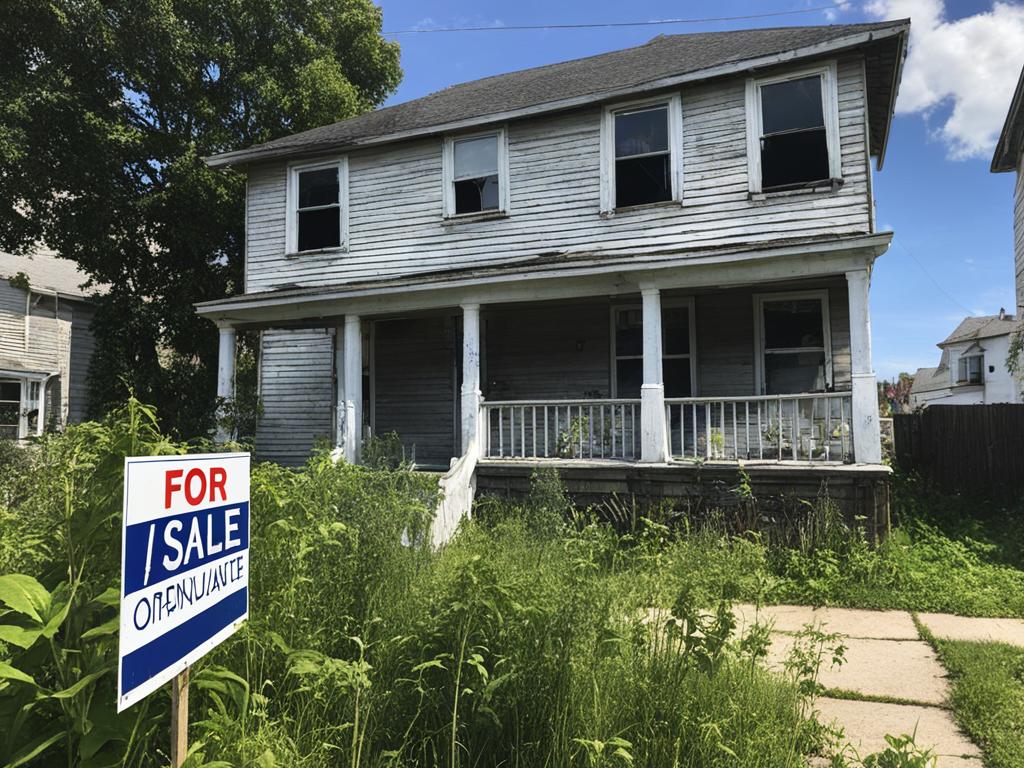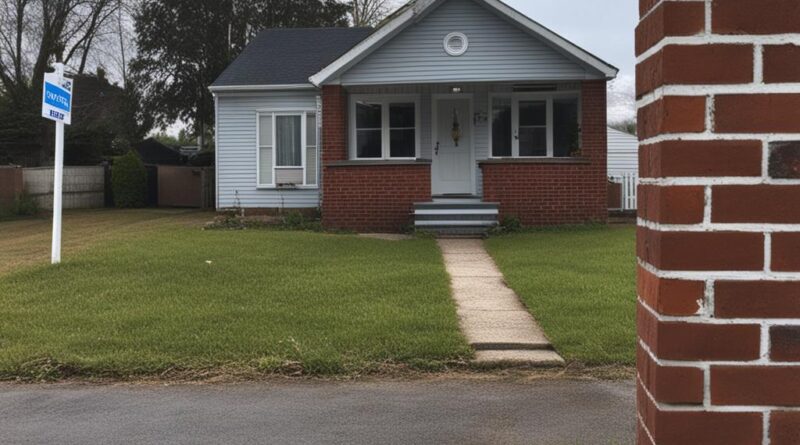Family Opportunity Mortgage Discontinued Update
The Family Opportunity Mortgage program, offered by Fannie Mae, allowed individuals to purchase a home for elderly parents or disabled adult children at owner-occupied rates. However, the formal program with the name “Family Opportunity Mortgage” has been discontinued. Although the program no longer exists, it is still possible to qualify for an owner-occupied conventional loan under special circumstances to provide housing for family members.
Key Takeaways:
- The Family Opportunity Mortgage program has been discontinued.
- Alternative options are available for buying a home for elderly parents or disabled adult children.
- Qualifying for a conventional loan under special circumstances is still possible.
- The Family Opportunity Mortgage program provided advantages such as lower interest rates and down payments.
- Consulting with a tax professional can help understand the tax implications of such a mortgage.
Advantages of the Family Opportunity Mortgage
The Family Opportunity Mortgage offered several advantages for families looking to provide housing for their elderly parents or disabled adult children. This unique program allowed buyers to purchase a home at lower interest rates and with a lower down payment compared to loans for investment properties or second homes. By classifying the purchase as owner-occupied, families could save money and create a more affordable housing option for their loved ones.
Here are some key advantages of the Family Opportunity Mortgage:
- Lower interest rates: Compared to loans for investment properties or second homes, the Family Opportunity Mortgage offered lower interest rates. This meant that families could potentially save thousands of dollars over the life of the loan.
- Lower down payment: The program also allowed for a lower down payment, making it more accessible for families who may not have significant savings. This reduced financial barrier made it easier for families to purchase a home for their loved ones.
- More flexible guidelines: The Family Opportunity Mortgage program had more flexible guidelines compared to traditional loans for investment properties or second homes. This provided families with increased eligibility and made it easier to qualify for the loan.
“The Family Opportunity Mortgage program offered families an opportunity to provide affordable housing for their elderly parents or disabled adult children, with lower interest rates and down payment requirements compared to loans for investment properties or second homes.”
Overall, the advantages of the Family Opportunity Mortgage provided families with a viable and cost-effective option to support their loved ones’ housing needs.
Family Opportunity Program Alternatives
If the Family Opportunity Mortgage program is no longer available, there are alternative options for buying a home for elderly parents or disabled adult children. Buyers can consider purchasing the home as an investment property or second home, although these options may come with higher interest rates and down payment requirements. Another option is to have the parents or adult child qualify for the mortgage on their own, if they meet the income and credit requirements.
While the Family Opportunity Mortgage program provided specific benefits for families looking to provide housing for their loved ones, its discontinuation does not mean the end of opportunities for acquiring suitable homes. Buyers can explore other mortgage programs and loan options that can still fulfill their goals.
Investment Property / Second Home:
Purchasing the home as an investment property or second home can be an alternative to the Family Opportunity Mortgage program. However, it is important to note that these options may come with higher interest rates and down payment requirements compared to the owner-occupied rates offered by the Family Opportunity Mortgage.
Investment properties are typically purchased with the intention of generating income through rentals or real estate appreciation. Second homes are properties that are used as a vacation or recreational residence by the owner. While these options may not provide the same level of affordability as the Family Opportunity Mortgage, they can still offer families the opportunity to provide suitable housing for their elderly parents or disabled adult children.
Qualified Borrowers:
If the Family Opportunity Mortgage program is discontinued, another alternative is to have the parents or adult child qualify for the mortgage on their own. This option requires the parents or adult child to meet the income and credit requirements set by lenders. They would need to demonstrate their ability to afford the mortgage payments and meet all other criteria for qualifying for a conventional loan.
It is important to consult with mortgage lenders who are experienced in working with families and individuals in similar situations. They can provide guidance on the loan options available for buying a home for elderly parents or disabled adult children, in light of the discontinued mortgage programs.
| Alternative Options | Pros | Cons |
|---|---|---|
| Investment Property | – Potential rental income – Real estate appreciation |
– Higher interest rates – Increased down payment requirements |
| Second Home | – Vacation or recreational residence – Flexibility of use |
– Higher interest rates – Increased down payment requirements |
| Qualified Borrowers | – Independent financing – Potential for lower rates |
– Must meet income and credit requirements – Sole responsibility for repayment |
While these alternative options may not provide the same financial advantages as the Family Opportunity Mortgage program, they can still help families achieve their goal of providing suitable housing for their loved ones. It is crucial to carefully consider the pros and cons of each alternative and choose the option that best fits the family’s unique circumstances and financial capabilities.

Qualifying for a Family Opportunity Mortgage
To qualify for a Family Opportunity Mortgage, buyers must meet certain criteria in accordance with conventional loan guidelines. These criteria include:
- Minimum Credit Score: Buyers must have a minimum credit score to demonstrate their creditworthiness and ability to manage mortgage payments.
- Debt-to-Income Ratio: Lenders assess buyers’ debt-to-income ratio to evaluate their ability to handle additional financial obligations without causing significant strain.
- Proof of Relationship: Buyers need to provide proof of their relationship to the family member they intend to buy the home for, such as birth certificates or legal documentation.
- Income Documentation: If the parent is unable to work or lacks sufficient income, buyers may need to provide income documentation on their behalf to assure the lender of their ability to fulfill mortgage payments.
- Letter of Explanation: Buyers should provide a letter explaining their intentions and the reasons behind the purchase, highlighting their commitment to supporting their family member and providing suitable housing.
- Dual Payment Affordability: Buyers must demonstrate their capability to afford the mortgage payments on both their current residence and the new home.
By meeting these requirements, buyers increase their chances of qualifying for a Family Opportunity Mortgage and fulfilling their housing goals for their loved ones.
Buying a Home for an Adult Child with a Disability
The Family Opportunity Mortgage program provides families with a unique opportunity to purchase a home for their adult child with a disability. This program allows families to offer housing and support to their disabled adult children while taking advantage of favorable financing options.
Similar to buying a home for elderly parents, the same rules and guidelines apply. The adult child must be unable to qualify for a mortgage on their own, and proof of permanent disability must be provided. By utilizing the Family Opportunity Mortgage program, families can secure a home for their adult child, ensuring they have a safe and accessible living environment.
Offering housing for adult children with disabilities not only provides them with a sense of independence but also allows families to ensure their long-term well-being. Purchasing a home through this program can bring peace of mind and stability to both parents and adult children.
The Family Opportunity Mortgage program supports families in creating a comfortable and supportive living environment for their disabled adult children. It presents an excellent opportunity for families to invest in their loved ones’ future while securing their own financial stability.
To further emphasize the advantages of the Family Opportunity Mortgage program for families, let’s take a look at a comparison table:
| Family Opportunity Mortgage | Alternative Options |
|---|---|
| Lower interest rates | Higher interest rates |
| Lower down payment requirements | Higher down payment requirements |
| Flexible guidelines | Stricter guidelines |
| Customized housing solutions | Limited housing options |

This table clearly illustrates the advantages the Family Opportunity Mortgage program offers compared to alternative options. Families can benefit from lower interest rates, reduced down payment requirements, and more flexible guidelines, making it easier to provide suitable housing for their adult child with a disability.
By taking advantage of the Family Opportunity Mortgage program, families can create a stable and supportive living environment for their disabled adult children, ensuring their well-being for years to come.
Family Opportunity vs Nursing Home
When it comes to providing housing for elderly parents, families often face the decision between a nursing home or purchasing a home through the Family Opportunity Mortgage program. While nursing homes and assisted living facilities can offer comprehensive care and support, they can also come with a hefty price tag. On the other hand, buying a home for parents allows families to build equity and potentially save on monthly expenses.
By choosing the Family Opportunity Mortgage program, families can create a more affordable and personalized living arrangement for their elderly parents. Instead of paying high monthly fees to a nursing home, families have the opportunity to invest in a property that can eventually become a valuable asset.
“The cost of nursing homes and assisted living facilities can be financially burdensome for many families. By purchasing a home for parents, families not only provide them with a comfortable and familiar living space but also gain the potential for long-term financial stability.”
One of the key advantages of the Family Opportunity Mortgage program is the ability to save on monthly expenses. While nursing homes require ongoing payments for care and services, owning a home allows families to avoid these costs and allocate funds towards other important needs.
The decision between a nursing home and purchasing a home for elderly parents ultimately depends on personal circumstances and financial considerations. Families should carefully assess the level of care needed, the financial resources available, and the desire for long-term financial security.
Comparison between Family Opportunity and Nursing Home
| Factors | Family Opportunity Mortgage | Nursing Home |
|---|---|---|
| Affordability | Can save on monthly expenses through mortgage payments and potential equity growth. | Can be costly due to high monthly fees for care and services. |
| Personalization | Allows families to create a customized living space for their elderly parents. | Offers comprehensive care but with limited personalization. |
| Social Interaction | Provides the opportunity for family members to be actively involved in the daily lives of their elderly parents. | Offers socialization with other residents but limited interaction with family members. |
| Long-Term Financial Impact | Potential for long-term financial stability through home equity. | Can deplete savings and assets over time. |
It’s important for families to weigh the advantages and disadvantages of both options and consider what will best suit their specific needs. By exploring the Family Opportunity Mortgage program, families can benefit from the opportunity to provide their elderly parents with a comfortable and affordable living arrangement while also securing their own financial future.
The Little Loophole – Big Advantage
The Family Opportunity Mortgage program offers a “loophole” that provides significant advantages to buyers looking to purchase a home for their elderly parents or disabled adult children. By classifying the home purchase as owner-occupied, families can benefit from lower interest rates, lower down payment requirements, and more flexible guidelines. This unique opportunity opens up a world of family financial opportunities and makes homeownership more accessible for those seeking to support their loved ones’ housing needs.
By taking advantage of the family opportunity mortgage advantages, families can save money, provide affordable housing options, and ensure that their elderly parents or disabled adult children are well taken care of. Let’s take a closer look at the advantages offered by the program:
- Lower Interest Rates: When buying a home through the Family Opportunity Mortgage program, the interest rates are typically lower compared to loans for investment properties or second homes. This translates into reduced monthly mortgage payments and long-term savings for families.
- Lower Down Payment Requirements: The program also offers lower down payment requirements, making it easier for families to secure financing and purchase a home for their loved ones. This is especially beneficial for those who may not have significant savings for a large down payment.
- More Flexible Guidelines: Unlike traditional investment property loans, the Family Opportunity Mortgage program provides more flexible guidelines, taking into account the unique circumstances of buying a home for family members. This allows families to navigate the mortgage process more smoothly.
This seamless integration of family needs into the mortgage market creates an ideal situation, providing families with a significant financial advantage. Owning a home through the program not only ensures the well-being and comfort of elderly parents or disabled adult children but also opens up possibilities for future financial stability through equity build-up.
The advantages offered by the Family Opportunity Mortgage program highlight the possibilities it presents for families seeking affordable and accommodating housing options. With lower interest rates, reduced down payment requirements, and more flexible guidelines, families can make the most of the financial opportunities available to them and provide their loved ones with a secure and comfortable home.
| Advantages of the Family Opportunity Mortgage |
|---|
| Lower interest rates compared to loans for investment properties or second homes |
| Lower down payment requirements |
| More flexible guidelines for buying a home for family members |
Eligible Properties for Family Opportunity Mortgage
The Family Opportunity Mortgage program offers various options for eligible properties that cater to the housing needs of families. Whether it’s a single-family home or a multi-unit dwelling, the program aims to provide suitable living arrangements for elderly parents or disabled adult children. By understanding the eligibility criteria and property requirements, families can explore mortgage options that best meet their unique circumstances.
Property Types
When considering the Family Opportunity Mortgage program, it’s essential to understand the types of properties that qualify. The program allows for the purchase of single-family homes or multi-unit dwellings conducive to year-round living.
Here are the key considerations for eligible properties:
- The property must be a single-family home or a multi-unit dwelling suitable for year-round living.
- It cannot be a timeshare or an investment home.
- The property should be intended for the primary residence of the elderly parent or disabled adult child.
Borrower Control and Occupancy
As part of the eligibility criteria, it’s crucial for the borrower to have control over the property and be responsible for its occupancy. This means that control or occupancy cannot be assigned to a management firm or any other entity.
Benefits of Eligible Properties
Choosing an eligible property for the Family Opportunity Mortgage program provides families with various advantages:
- Opportunity to create a comfortable living environment for elderly parents or disabled adult children.
- Potential for long-term financial stability and independence.
- Possibility of building equity over time.
- Flexibility to tailor the property to meet the specific needs of family members.

| Property Type | Eligibility |
|---|---|
| Single-family homes | Allowed |
| Multi-unit dwellings | Allowed |
| Timeshares | Not allowed |
| Investment homes | Not allowed |
Tax Implications of a Family Opportunity Mortgage
The tax implications of owning a home through the Family Opportunity Mortgage program may vary. It’s important for buyers to consult with a tax professional to understand the specific tax deductions and benefits they may be eligible for. Taking advantage of available tax deductions can provide additional financial advantages to families.
Under the Family Opportunity Mortgage program, there are potential tax deductions related to mortgage interest and property taxes. These deductions can help offset the overall cost of homeownership and provide families with valuable tax savings.
Tax Deductions for Mortgage Interest
One of the key tax benefits of owning a home through the Family Opportunity Mortgage program is the ability to deduct mortgage interest. This deduction allows families to reduce their taxable income by the amount of interest paid on their mortgage loan each year. The interest deduction can result in significant savings, depending on the size of the mortgage and the interest rate.
It’s important to note that there are specific criteria and limitations for qualifying for the mortgage interest deduction. Buyers should consult with a tax professional to ensure they meet all the requirements and understand the potential tax savings.
Tax Deductions for Property Taxes
In addition to mortgage interest, homeowners can also deduct property taxes paid on their primary residence. Property tax deductions can help lower the overall tax liability for families who own homes through the Family Opportunity Mortgage program.
Again, it’s essential to consult with a tax professional to determine the specific tax deductions available based on individual circumstances. They can provide personalized guidance to ensure families take full advantage of the tax benefits associated with owning a home through the Family Opportunity Mortgage program.
Consult a Tax Professional
Given the complexity of tax laws and regulations, it’s strongly recommended that families consult with a qualified tax professional to navigate the various tax implications of owning a home through the Family Opportunity Mortgage program. A tax professional can provide valuable insights and help families maximize their tax benefits.
Remember to consult a tax professional to understand the specific tax deductions and benefits available for homeowners under the Family Opportunity Mortgage program. They can provide personalized advice and help families optimize their tax situation.

| Tax Deductions | Description |
|---|---|
| Mortgage Interest | Deductible interest paid on the mortgage loan |
| Property Taxes | Deductible taxes paid on the primary residence |
Finding a Family Opportunity Mortgage Lender
Finding a lender that offers the Family Opportunity Mortgage program can be a challenge as the program no longer officially exists. However, many lenders still offer owner-occupied conventional loans for purchasing a home for family members. Buyers should search for lenders who adhere to Fannie Mae guidelines and are experienced in assisting families with these types of loans.
When looking for a family opportunity loan, it’s important to consider lenders who understand the unique circumstances and requirements of financing a home for a family member. These lenders may have specialized knowledge and experience in handling discontinued home loan programs like the Family Opportunity Mortgage.
Here are some key factors to consider when searching for a lender:
- Experience: Look for lenders who have a track record of assisting families with similar loans. They should be familiar with the documentation required and the intricacies of the application process.
- Knowledge: Choose a lender who is well-versed in Fannie Mae guidelines and understands the eligibility criteria for owner-occupied conventional loans.
- Support: Ensure the lender provides personalized support and guidance throughout the loan application and approval process. They should be accessible and responsive to address any questions or concerns.
- Competitive Rates: Compare interest rates and loan terms offered by different lenders to find the most favorable options for your specific needs.
“Finding the right lender for a Family Opportunity Mortgage can make all the difference in successfully securing financing for a home. Consider lenders who specialize in this type of loan to ensure a smooth and efficient process.”
By working with a lender who is knowledgeable about family opportunity loans, buyers can increase their chances of successfully obtaining financing for a home for their loved ones. It’s important to gather multiple quotes and compare offers to make an informed decision. A dedicated mortgage professional can guide buyers through the available options and assist them in finding the right loan package.
Remember, although the formal Family Opportunity Mortgage program may be discontinued, families can still explore alternative loan programs to support their goal of providing housing for elderly parents or disabled adult children.
Conclusion
Although the formal program known as the “Family Opportunity Mortgage” has been discontinued, the option of providing housing for elderly parents or disabled adult children through owner-occupied financing is still available. Families can explore alternative loan programs and work with lenders experienced in understanding the unique circumstances surrounding purchasing a home for family members. While the specific program may no longer exist, families can still find financial opportunities to meet their loved ones’ housing needs.
Discontinuation of mortgage programs like the Family Opportunity Mortgage doesn’t mean families are left without options. Lenders who adhere to Fannie Mae guidelines can help families qualify for owner-occupied conventional loans, ensuring they can provide suitable housing for their elderly parents or disabled adult children. With the right lender and loan program, families can still achieve their goals of supporting their loved ones and providing a stable home environment.
Buying a home for family members remains an important financial decision, even without the Family Opportunity Mortgage program. Families can consider other programs or approaches tailored to their unique situation, exploring possibilities that match their financial resources and needs. While the Family Opportunity Mortgage program may have come to an end, the desire to support and care for elderly parents or disabled adult children through homeownership continues to inspire families to find alternative solutions.
FAQ
Is the Family Opportunity Mortgage program still available?
No, the formal program under the name “Family Opportunity Mortgage” has been discontinued. However, alternative options exist for purchasing a home for family members.
What were the advantages of the Family Opportunity Mortgage program?
The Family Opportunity Mortgage program offered lower interest rates and a lower down payment for purchasing a home for elderly parents or disabled adult children, making it a more affordable housing option for families.
What are the alternatives to the Family Opportunity Mortgage program?
Buyers can consider purchasing the home as an investment property or second home, or have the family member qualify for the mortgage on their own if they meet the income and credit requirements.
How can I qualify for a Family Opportunity Mortgage?
To qualify for a Family Opportunity Mortgage, buyers need to meet the general conventional loan criteria and provide proof of their relationship to the family member, income documentation, and a letter of explanation stating their intentions.
Can the Family Opportunity Mortgage program be used for buying a home for an adult child with a disability?
Yes, the Family Opportunity Mortgage program can be used to purchase a home for an adult child with a disability, as long as they are unable to qualify for a mortgage on their own and provide proof of permanent disability.
What are the factors to consider when deciding between a Family Opportunity Mortgage and a nursing home for elderly parents?
The choice between a Family Opportunity Mortgage and a nursing home depends on personal circumstances and financial considerations. Owning a home allows families to build equity and potentially save on monthly expenses, while nursing homes provide specialized care but can be more expensive.
What advantages does the “little loophole” of the Family Opportunity Mortgage program offer?
The “little loophole” of the Family Opportunity Mortgage program allows buyers to benefit from lower interest rates, lower down payment requirements, and more flexible guidelines when purchasing a home for elderly parents or disabled adult children.
What types of properties are eligible for the Family Opportunity Mortgage program?
The Family Opportunity Mortgage program can be used to purchase single-family homes or multi-unit dwellings suitable for year-round living, but not timeshares or investment homes. The property must be intended for the primary residence of the family member.
What are the tax implications of owning a home through the Family Opportunity Mortgage program?
The tax implications of owning a home through the Family Opportunity Mortgage program may vary. Buyers should consult with a tax professional to understand the specific tax deductions and benefits they may be eligible for.
How can I find a lender for a Family Opportunity Mortgage?
While the formal Family Opportunity Mortgage program no longer exists, buyers can still find lenders who offer owner-occupied conventional loans for purchasing a home for family members. It is recommended to search for lenders who adhere to Fannie Mae guidelines and have experience with these types of loans.
Are there still mortgage options available for families despite the discontinuation of the Family Opportunity Mortgage program?
Yes, although the formal program is no longer available, families can still explore alternative loan programs and find mortgage options that support their housing needs for their elderly parents or disabled adult children.

